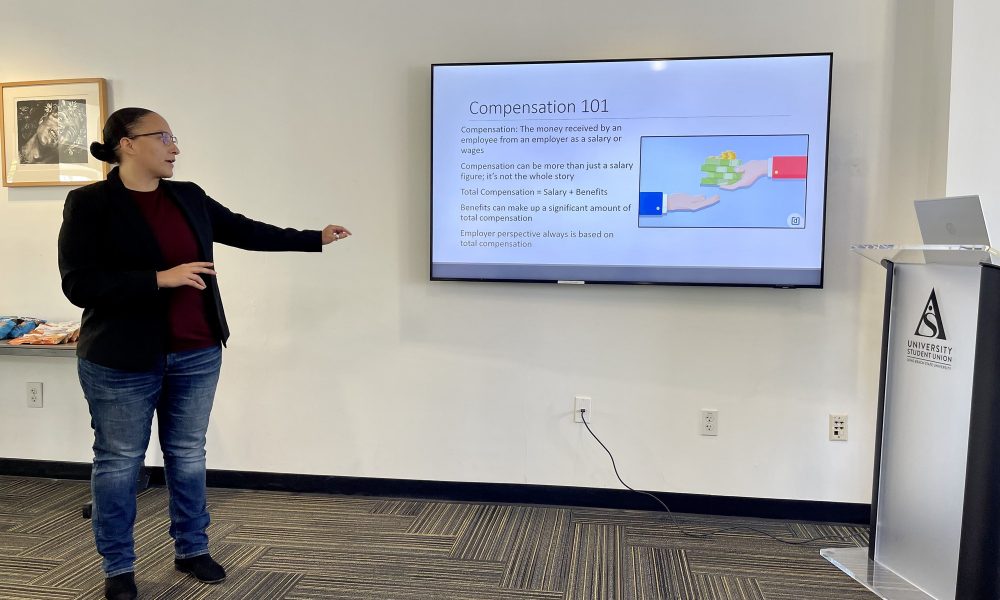Negotiating for a salary can be intimidating and awkward, but it can also be a useful skill to learn before landing your future job.
Rose Polanco, Associated Students, Inc. human generalist, gave tips and tricks on how to successfully negotiate your salary on Thursday at the University Student Union.
Polanco said it is important to wait for the right moment to negotiate. Waiting until the interview process is over is a good time to ask questions to a prospective employer.
“After you go through your interview process, you will get an offer, negotiation can take up to 24 to 48 hours,” Polanco said.
“You have time to think about it and decide what is the best decision for you, but you do not wanna put too much time on the table, where it makes them have a negative outlook on you.”
Employees have the right to request higher pay when they feel their qualifications exceed the requirements posted for the job.
According to Procurement Tactics, one out of four applicants do not know how to negotiate their pay and 58% of job seekers are unhappy with their granted salary amount.
As an employee who matches the job posting and exceeds them, it is important to write down a list of qualifications that makes you stand out from the other applicants. Negotiating for a higher pay is recommended and there should be no shame in doing so.
“Negotiating is part of the process, it is important to recognize that some job positions will offer a great list of benefits and lower pay, or vice versa, but that should not stop you from negotiating,” Polanco said.
When negotiating your salary to establish your future career, it is important to not only look out for your rights as an employee, but to also take ownership and be confident that you deserve the higher pay.
“For the amount of hours and work you are putting in, you wanna make sure it is being compensated for, because it is a job,” said Annie Le, a student at the event.
“You are there to work, you don’t wanna get unpaid, it’s like volunteering. If you were to volunteer, you should go somewhere else. When you work, you should be getting paid for it.”
Polanco said Imposter syndrome, an idea of “not feeling good enough and feeling like a fraud,” may also affect individuals who do not feel they deserve higher pay during negotiation.
Before an interview, it is important to prepare in order to overcome this feeling. When handling this scenario, the first step is to have an idea of the ideal compensation.
“Look at the company and foundations, how many employees they have and how much their budget is. You can then look at your qualifications, then you can gain a range for your ideal salary,” Polanco said.
The second step is to browse other job advertisements in the same category. This will allow you to make comparisons and get a sense of jobs that are similar but differ in responsibilities. Even if there is a strong list of benefits, it is still acceptable to negotiate your salary and benefits. It never hurts to ask.
“Take a chance, nothing bad can come out of you asking, but definitely take a chance… and do it,” Polanco said.




